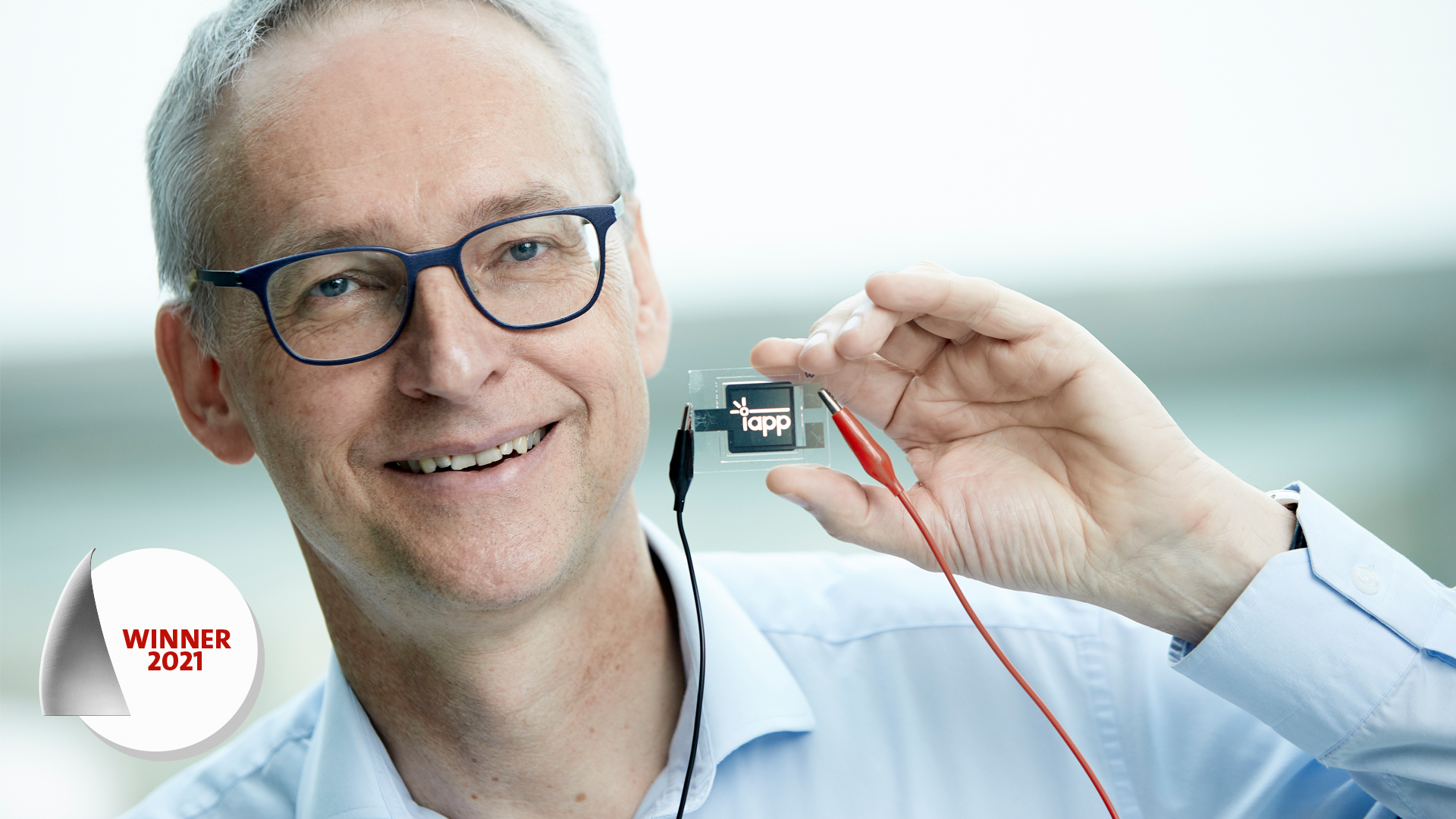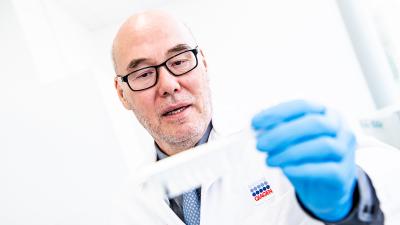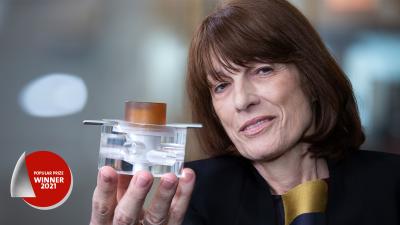Karl Leo
Advances in organic semiconductors
Winner of the European Inventor Award 2021
Semiconductors are a crucial component of electronic devices. In the 1980s, one type of semiconductor, organic (carbon-based) semiconductors, was recognised for its many advantages: affordability, flexibility and capacity to be recycled. However, organic semiconductors also had several drawbacks, including poor conductivity and a short lifespan, which made them impractical. As a result, manufacturers used inorganic semiconductors made from materials such as silicon.
Karl Leo's research, driven by his innate curiosity and lifelong fascination with electronics, helped to overcome these obstacles. While working at the Technische Universität Dresden (TU Dresden), he decided to borrow a method used to boost the conductivity of inorganic semiconductors and apply it to organic semiconductors. This process, known as doping, involves adding tiny amounts of electron-producing substances to raise a material's conductivity. The experiment proved a success, paving the way for Leo and his team to develop a new generation of high-performing OLEDs. By 1998, Leo's team at TU Dresden had developed an OLED requiring only one-fifth of the standard operating voltage which, in some cases, became a million times more conductive than previously possible, opening the door to new possibilities for the electronics industry.
Boosting image quality and power efficiency
Leo's patented OLED technology was commercialised through Novaled AG, a start-up which he co-founded in 2001. Introduced in flat screens and other electronic devices, Leo's OLEDs improve not only image brightness but also resolution, contrast and power efficiency. This caught the attention of Samsung, which acquired Novaled in 2013 in order to use OLEDs in its products.
Leo is currently Chair and Professor of Optoelectronics at TU Dresden and Director of the interdisciplinary Dresden Integrated Center for Applied Physics and Photonic Materials (DC- IAPP). The 60-year-old continues his work in organic semiconductors, inspired by the success of his invention and its potential to revolutionise other fields, including solar energy. He has co-founded eight start-ups to date, including Novaled, contributing to the growth of Germany's Silicon Saxony high-tech network.
Media gallery
Contact
European Inventor Award and Young Inventors Prize queries:
european-inventor@epo.org Subscribe to the European Inventor Award newsletterMedia-related queries:
Contact our Press team#InventorAward #YoungInventors






